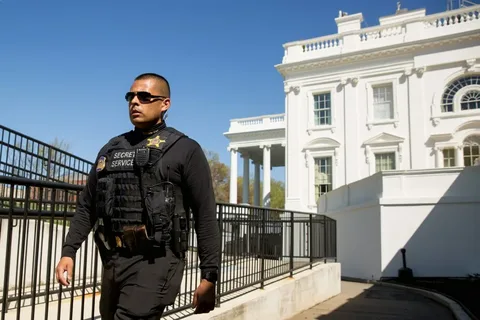Jacqueline Marsaw: Career, Controversy, and Public Lessons
Jacqueline Marsaw is a public figure who came into the national spotlight in 2024 following a highly controversial social media post. Before this incident, she worked quietly in politics as a dedicated staffer in Congressman Bennie Thompson’s office. In her position, she was responsible for helping local citizens, solving problems, and building trust between communities and their elected representative.
Her story is one of both achievement and caution. On the one hand, Marsaw had built a respectable career in public service. On the other, a single online comment changed everything, leading to federal investigation, media attention, and job loss. In today’s world, where social media is powerful and fast-moving, her case shows how quickly reputations can shift. To understand this better, we need to look at her life, her professional journey, and the controversy that brought her into the headlines.
Early Life and Educational Background
Jacqueline Marsaw was raised in Mississippi, a state with a long history of community involvement and political activity. Her early life shaped her values of service and leadership. Like many young people, she focused on education as the key to a better future. She eventually attended Jackson State University, one of Mississippi’s most respected historically Black universities.
At Jackson State, she studied elementary education. This path reflected her interest in teaching, mentoring, and serving others. Although she did not continue into a long-term teaching career, the skills she gained—communication, organization, and leadership—proved useful in her later political career. Her education equipped her with the ability to connect with people, understand their needs, and act as a bridge between citizens and institutions. This background shows that her early focus was not on politics, but on service and support.
Professional Career and Political Role

Marsaw’s career path eventually led her into politics and government service. She became closely associated with Congressman Bennie Thompson, the longest-serving African American representative from Mississippi. Thompson is known nationally as the former chairman of the House Homeland Security Committee, making his office an important one.
As a caseworker and field office manager at Thompson’s Natchez office, Marsaw had an important role. She was responsible for serving residents in Adams, Amite, Franklin, and Wilkinson counties. Her daily work included listening to constituents’ problems, helping them with federal programs, and guiding them through complicated government systems.
For many citizens, congressional staffers like Marsaw are their first and most personal connection to Washington, D.C. Staffers handle cases ranging from Social Security benefits to veterans’ affairs, making them vital in ensuring government services reach people effectively. Marsaw’s role required dedication and trust. She was seen as an accessible and reliable person who could solve problems on behalf of the Congressman.
The Controversial Social Media Post
In July 2024, everything changed for Jacqueline Marsaw. News broke about an attempted shooting at a rally attended by former President Donald Trump. Across the country, people reacted strongly online. Social media became filled with comments ranging from concern to criticism. In the middle of this wave, Marsaw made a Facebook post that sparked national attention.
Her post read:
“That’s what your hate speech got you!!”
“I don’t condone violence but please get you some shooting lessons so you don’t miss next time ooops that wasn’t me talking.”
These remarks were quickly criticized. Even though she wrote that she did not condone violence, her words suggested support for the attack. In today’s environment, where threats to public figures are taken seriously, such statements are considered dangerous. The post was shared widely, leading to anger, debate, and calls for accountability. What might have been intended as a frustrated joke turned into a statement with national consequences.
Secret Service Investigation and Public Attention

The U.S. Secret Service, which is responsible for protecting presidents and former presidents, immediately launched an investigation into Marsaw’s post. Their job requires them to treat any potential threat, direct or indirect, with the highest level of seriousness. Even comments made online without intent can be investigated if they appear to encourage violence.
For Marsaw, this meant that her words were no longer just a Facebook post—they were a matter of national security. Local and national media outlets quickly reported the story, bringing her name into headlines. Many citizens who had never heard of her before now associated her name with controversy.
The investigation showed the seriousness of online communication in the modern age. Authorities emphasized that even if a person later claims their comment was a joke, once it involves threats against political figures, it becomes a federal matter. Marsaw’s experience is a clear example of how quickly the digital world can turn personal expression into a public and legal issue.
Response from Congressman Bennie Thompson
Congressman Bennie Thompson acted quickly in response to the controversy. In a public statement, he confirmed that Jacqueline Marsaw was no longer employed by his office. He stressed that her comments did not represent him or his staff and that he did not condone violence in any form.
For an elected official, reputation and public trust are critical. By ending Marsaw’s employment, Thompson distanced himself from the controversy and reinforced his commitment to professional standards. The decision also highlighted how staffers, even at local offices, are expected to uphold high levels of responsibility. In politics, the actions of staff often reflect on their leaders, making discipline and accountability essential.
Public and Media Reactions

The reaction to Marsaw’s post was intense and divided. Many members of the public condemned her words, calling them irresponsible and dangerous, especially coming from someone connected to an elected official. Critics argued that her remarks contributed to political division and could potentially inspire others toward violence.
Media outlets across the country covered the story. Headlines framed Marsaw’s comments as shocking and inappropriate. Television stations, newspapers, and online platforms debated the meaning and impact of her words. Some commentators suggested that her post highlighted the growing problem of careless communication online.
At the same time, a few people defended her, saying that she was simply expressing frustration and that her words should not be taken literally. Supporters argued that she had a right to free speech, but this defense remained limited compared to the widespread criticism. Overall, the controversy damaged her reputation and ended her political career.
Lessons from the Incident
The case of Jacqueline Marsaw teaches several important lessons.
- Social media responsibility: Words written online are powerful and can spread far beyond the original audience. Once posted, they cannot be fully taken back.
- Professional accountability: Those who serve in government or public positions must recognize that their personal actions reflect on their employers and institutions.
- Legal consequences: Threats or jokes about violence against political leaders are taken seriously by federal authorities, no matter the intent.
- Public trust: Citizens expect professionalism from those connected to elected officials, and violations of that trust can end careers.
Her experience is a reminder for everyone—whether in politics or not—that the digital world requires careful thought before posting. Freedom of expression exists, but it comes with responsibility.
Conclusion
Jacqueline Marsaw’s story is both inspiring and cautionary. She began with a strong background in education and community service, worked her way into an important role in Congressman Bennie Thompson’s office, and dedicated herself to helping local citizens. However, one social media post changed her path entirely, leading to national attention, federal investigation, and the end of her political career.
Her case demonstrates the immense power of social media and the importance of responsibility, especially for those in public service. In today’s interconnected world, words carry weight, and the consequences of careless remarks can be swift and lasting. Ultimately, the story of Jacqueline Marsaw reminds us that professionalism and accountability extend beyond the workplace and into every aspect of modern communication.
FAQs
Who is Jacqueline Marsaw?
Jacqueline Marsaw is a former staffer for Congressman Bennie Thompson who worked as a caseworker and field office manager in Natchez, Mississippi.
Why was Jacqueline Marsaw investigated?
She was investigated by the U.S. Secret Service after a Facebook post about an attempted shooting involving former President Donald Trump gained attention.
What did Congressman Bennie Thompson say about her?
Thompson stated that Marsaw was no longer employed by his office and emphasized that he did not condone her comments in any way.
Did Jacqueline Marsaw face legal action?
She was investigated by the Secret Service, but there is no public record of formal charges being filed against her.
What can we learn from this incident?
The incident highlights the importance of careful communication on social media, accountability in public service, and the seriousness of comments about violence.
Related Post: